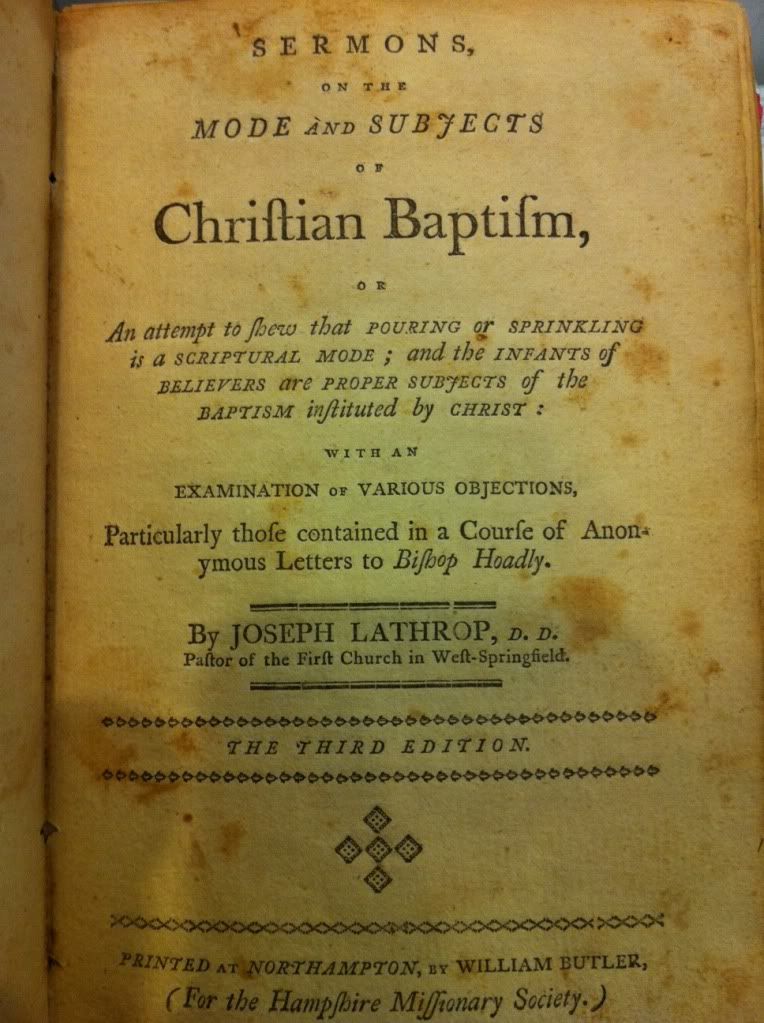Constantlyreforming
Puritan Board Sophomore
Have any of you read this? It's quite a thought provoking read, and I just love reading Lathrop's stuff as he was so practical and down to earth...
---------- Post added at 03:27 PM ---------- Previous post was at 03:23 PM ----------
Here's the title. im too lazy to type it.

---------- Post added at 03:32 PM ---------- Previous post was at 03:27 PM ----------
I believe that he makes a great argument, in that we don't have any record of any of the early apostles or disciples children (as adults) being baptized ever in scripture. Of all those at Pentecost, and all those who were sent out, there is not an instance in the book of Acts of any children of the followers of Christ being baptized in their adulthood. See below for the argument:

---------- Post added at 03:27 PM ---------- Previous post was at 03:23 PM ----------
Here's the title. im too lazy to type it.

---------- Post added at 03:32 PM ---------- Previous post was at 03:27 PM ----------
I believe that he makes a great argument, in that we don't have any record of any of the early apostles or disciples children (as adults) being baptized ever in scripture. Of all those at Pentecost, and all those who were sent out, there is not an instance in the book of Acts of any children of the followers of Christ being baptized in their adulthood. See below for the argument:

